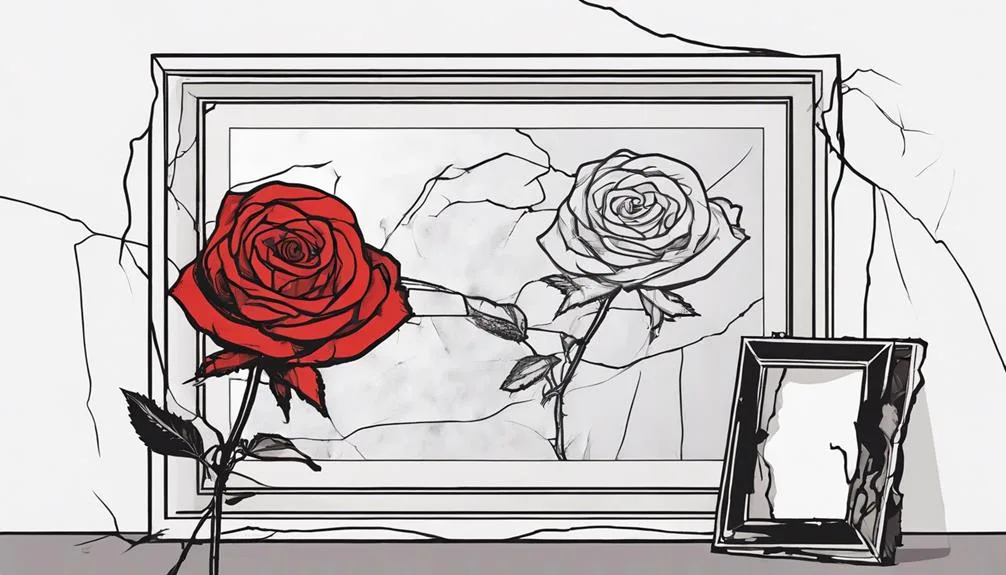In love, you’re either getting closer or drifting apart, and sometimes it’s not easy to see which.
If you’re barely talking with your partner and feel emotionally distant, it’s time to think about your relationship’s health.
Noticing less talking, no closeness, or constant nagging means figuring out if you can or want to fix things.
Understanding these signs of a failing relationship can help you decide what to do next.
Key Takeaways
- Decreased communication often signifies a deeper issue, reflecting a loss of interest in maintaining a meaningful connection.
- A noticeable drop in intimacy, including both emotional and physical aspects, marks a significant decline in relationship health.
- Frequent, unresolved arguments over minor issues can indicate underlying dissatisfaction and disconnect between partners.
- Growing emotional distance and loss of shared interests highlight a fading bond and potential drift towards relationship failure.
Decreased Communication
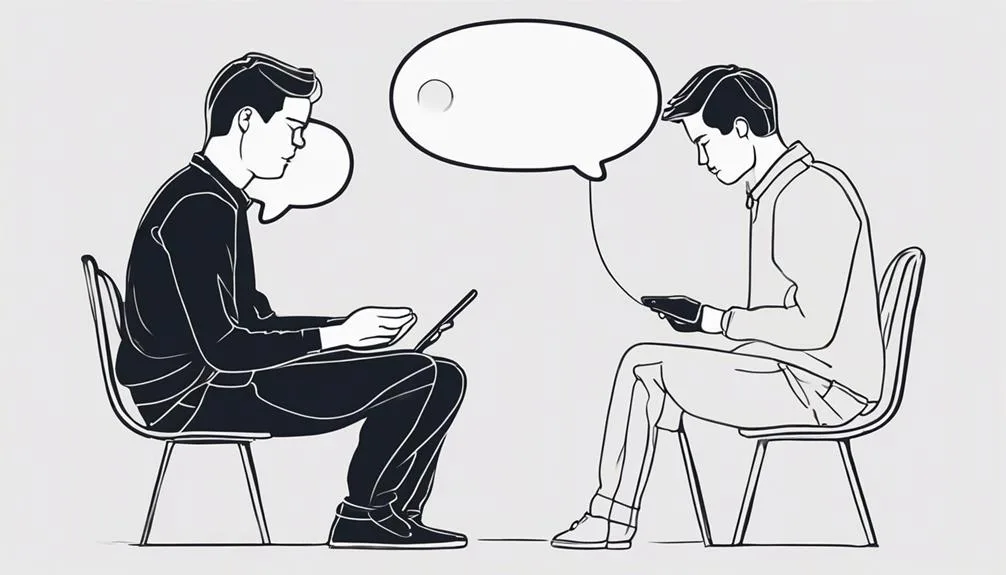
One clear sign of a failing relationship is when you and your partner talk less frequently, marking a decrease in communication. This isn’t just about fewer conversations; it’s about the quality of those discussions dwindling. You might start noticing more silent meals, where the only sounds are cutlery and chewing, rather than the lively exchanges you used to enjoy.
It’s not only face-to-face interactions that suffer. Your engagement across communication platforms may also take a hit. Perhaps you used to text throughout the day, sharing thoughts or funny observations, but now, those messages are sparse or purely transactional. This shift isn’t just a phase; it’s a red flag signaling deeper issues that you can’t afford to ignore.
Lack of Intimacy
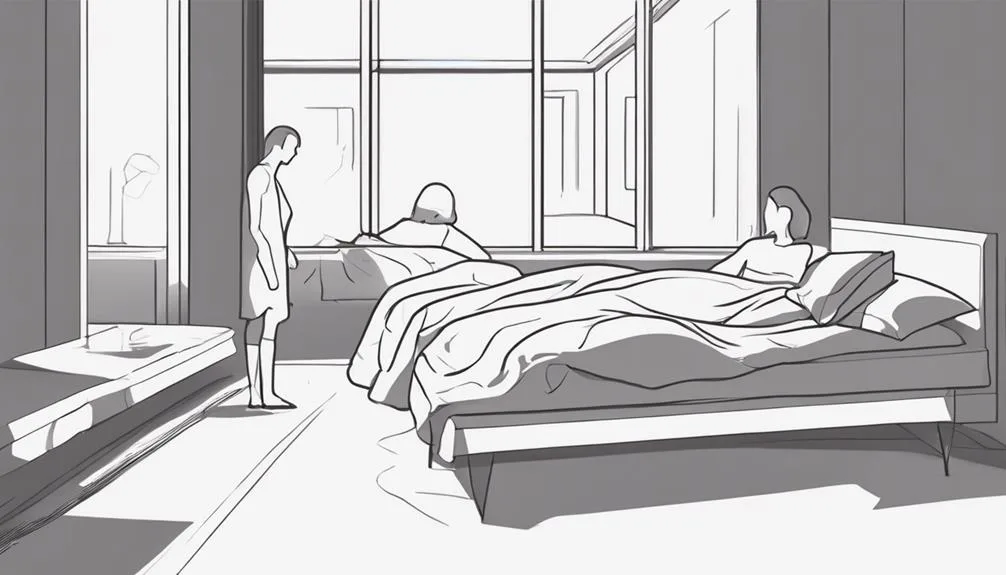
A dwindling sex life isn’t the only marker of fading intimacy in a relationship; it’s also about the lost comfort in being close or vulnerable with each other. You might feel a growing physical disconnect, where even sitting side by side feels like worlds apart. An affection deficit creeps in, turning what used to be frequent, warm touches into rare, hesitant gestures.
To evoke emotion, consider these points:
- The cold silence filling the room where laughter once lived.
- Longing looks that go unnoticed, as if you’re both fading shadows to each other.
- The heavy sighs that replace goodnight kisses, signaling a chasm too wide to bridge with words alone.
These signs of vanishing intimacy whisper the painful truth: your connection is fraying at the edges.
Frequent Arguments
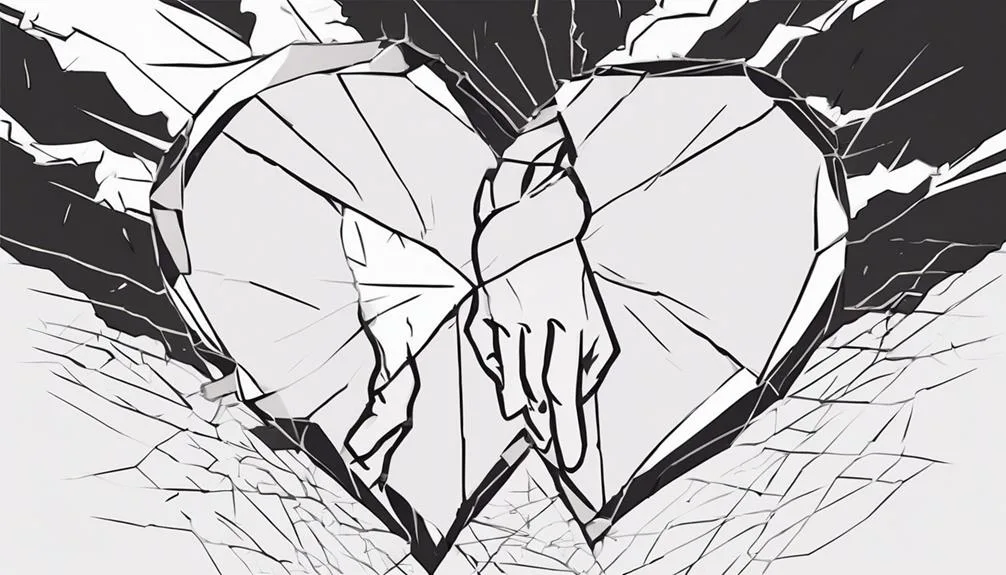
While the silence of fading intimacy is profound, it’s the escalating frequency of arguments that loudly heralds a relationship in distress. You might find yourselves caught in a loop of squabbles over seemingly trivial matters, signaling deeper issues at play. Identifying argument triggers is important; they often stem from unmet needs or unresolved conflicts. Recognizing these triggers allows you to address the root causes rather than just the symptoms.
Adopting effective resolution strategies becomes important. It’s about listening actively, acknowledging each other’s feelings, and seeking compromises. Remember, it’s not about winning an argument but understanding and valuing each other’s perspectives. When you start focusing on resolution rather than retaliation, you pave the way for healing and strengthening your bond.
Loss of Trust

Eroding gradually, trust is often the first casualty in a relationship headed for turmoil. You mightn’t notice it at first, but soon, the foundation you both built starts to crumble under the weight of privacy breaches and suspicious behaviors. These moments can leave you feeling isolated, confused, and desperate for a sense of security.
- Privacy breaches – When you find yourself or your partner snooping through personal messages or emails, it’s a clear sign that trust has been compromised.
- Suspicious behaviors – Unexplained absences or lies about one’s whereabouts can ignite a firestorm of doubt.
- Defensiveness – A sudden increase in defensiveness over minor inquiries suggests something isn’t right.
As these signs manifest, the bond you once cherished may begin to feel more like a battleground than a safe haven.
Emotional Distance
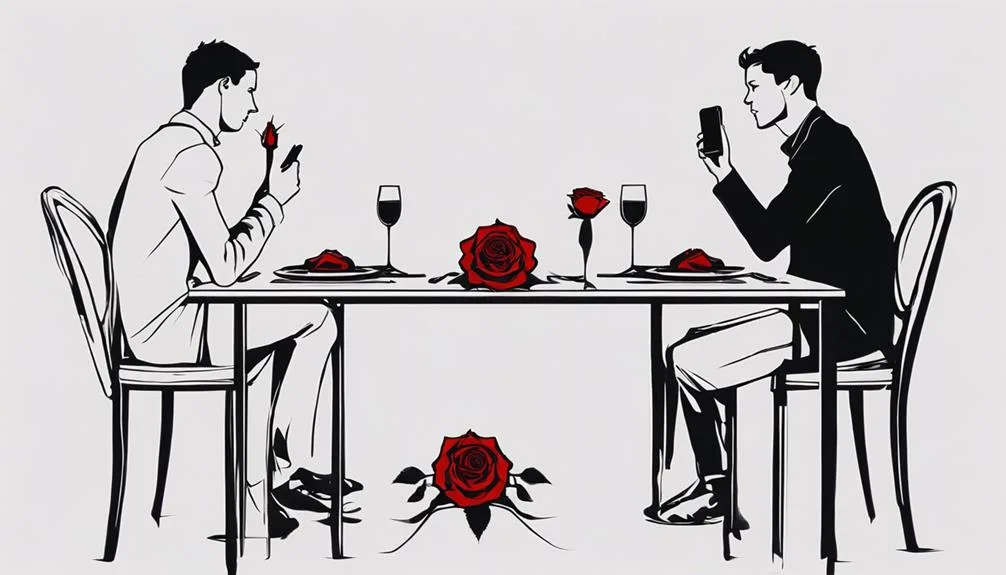
Gradually, you may start to notice an invisible wall of emotional distance erecting between you and your partner, making heartfelt conversations and connections increasingly rare. This creeping sense of separation doesn’t happen overnight. Often, it’s the result of unresolved issues or neglect.
The silent treatment, once a rare punishment, might become a common response to conflicts, replacing constructive dialogue. You’ll find yourselves spending less time engaging in shared hobbies that once brought you closer, further widening the gap. It’s as if the activities that once symbolized your unity are no longer appealing.
This emotional drift doesn’t just signify a loss of interest in shared pastimes but indicates a deeper disconnect, hinting at a relationship that’s gradually losing its warmth and intimacy.
Avoiding Each Other
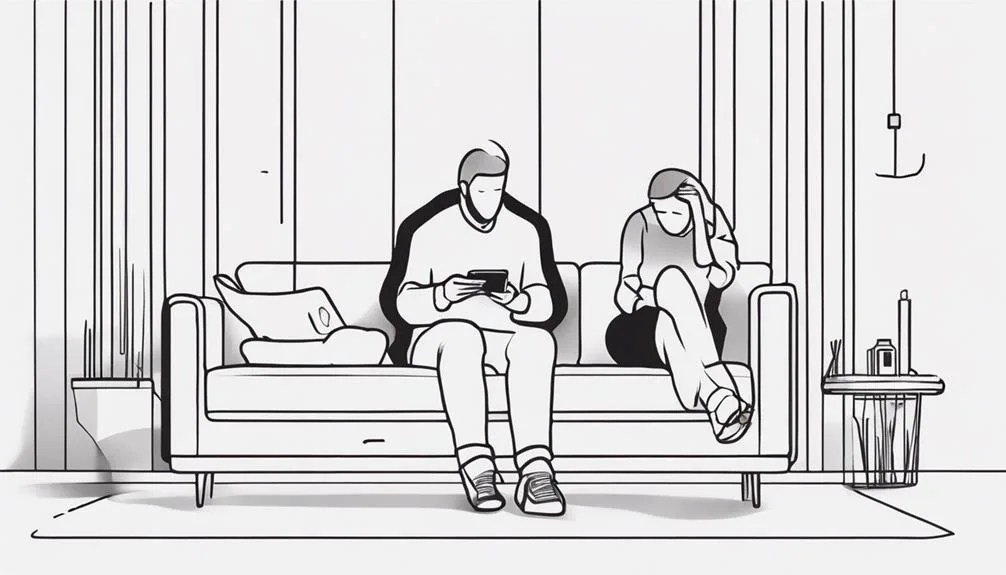
As emotional distance grows, you may also find yourselves intentionally avoiding each other, signaling a further decline in your relationship’s health. This avoidance can manifest in various subtle yet impactful ways. You’re not just physically distancing but emotionally retreating into silos of loneliness. Here are three poignant signs:
- Silent dinners become the norm, where the clinking of cutlery replaces conversation, highlighting the growing chasm between you.
- Solo activities you once shared now become solitary escapes, reflecting your increasing disinterest in shared experiences.
- The couch becomes a battleground, with each inch apart screaming of the emotional miles between you.
These instances aren’t just habits; they’re distress signals, indicating that what once was a partnership is now parallel paths of isolation.
No Future Plans
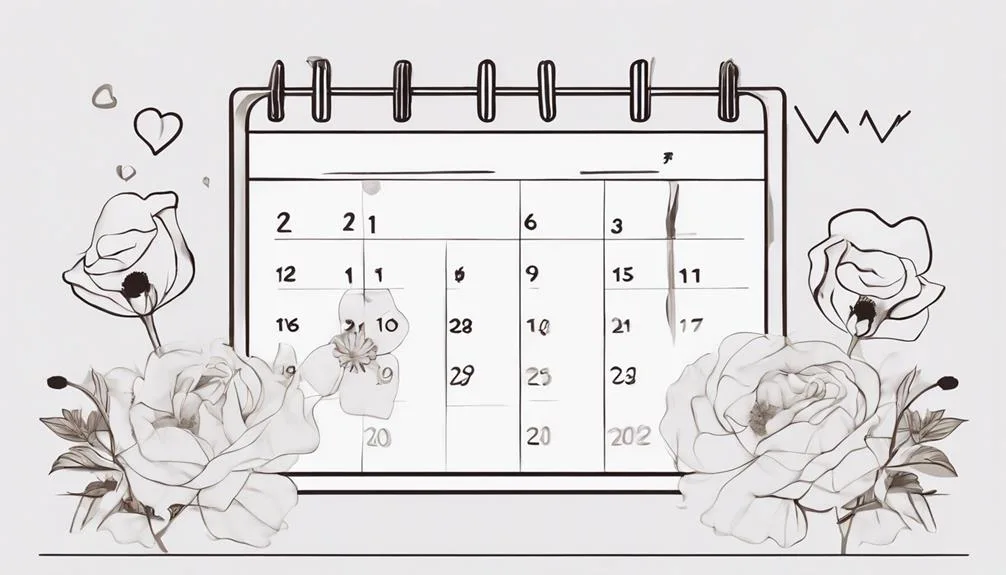
When you stop making future plans together, it often signals a deep rift in your relationship. Shared dreams and adventure planning aren’t just fun; they’re fundamental components of a thriving partnership.
If you’re finding that conversations about the future have dried up, or that the idea of planning a simple getaway feels intimidating, it’s a stark sign that the connection might be waning. Without the excitement of shared experiences on the horizon, the relationship can start feeling stagnant.
Constant Criticism
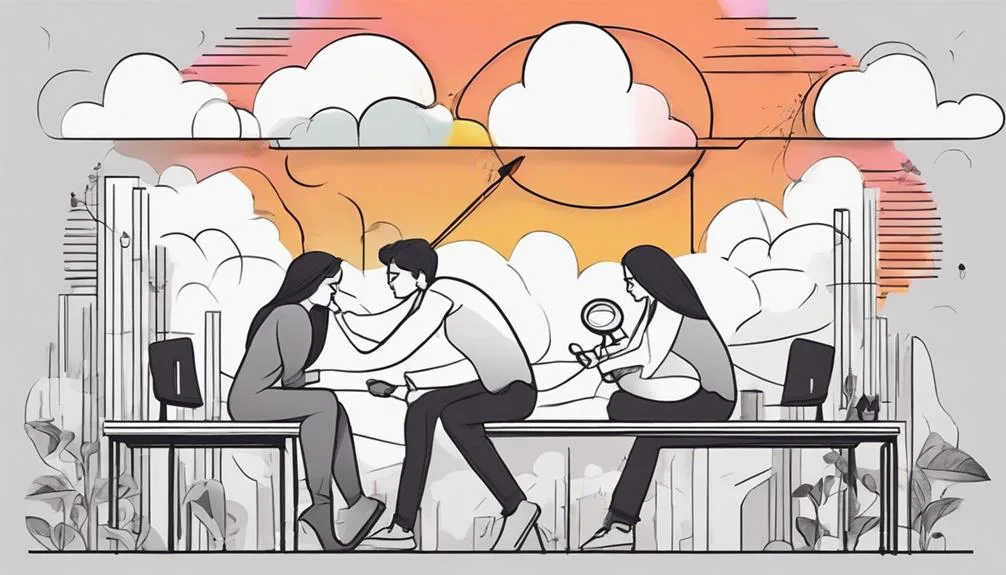
A steady stream of criticism can erode the bedrock of trust and respect in your relationship, signaling deep-seated issues that need addressing. When every comment from your partner focuses on what you’re doing wrong, not only does it foster self-doubt, but it also brews a potent mix of resentment.
Here’s how this relentless negativity might be affecting you:
- You start questioning your worth. Constant criticism makes you doubt your abilities and value as a partner.
- Your self-confidence takes a hit. Feeling perpetually underappreciated, your belief in your own strengths wanes.
- Resentment towards your partner grows. This bitterness can become a barrier to intimacy, pushing you both further apart.
Feeling Unappreciated
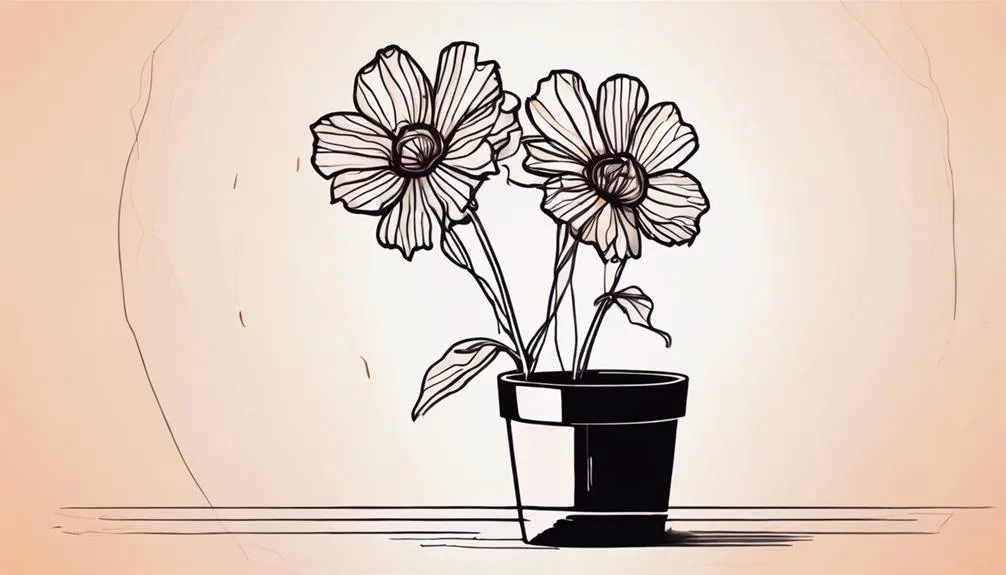
Moving from the pain of constant criticism, feeling unappreciated in a relationship can further deepen the emotional divide between partners. When your efforts seem neglected, and your contributions go unacknowledged, it’s like shouting into a void. You’re putting in the work, trying to make things better, but it’s as if you’re invisible.
This lack of recognition can leave you questioning your value in the partnership. It’s not just about wanting praise; it’s about needing to feel seen and valued. If you’re constantly giving without any form of appreciation in return, it drains you.
It’s crucial for both partners to acknowledge each other’s efforts to maintain a healthy, fulfilling relationship. Otherwise, the bond starts to weaken, turning what was once a loving connection into a source of constant disappointment.
Different Life Goals

Diverging life goals can greatly strain a relationship, as they often lead to conflicting desires and priorities. When your career aspirations don’t align with your partner’s, or your financial priorities are worlds apart, it’s like you’re both pulling in opposite directions. This misalignment can create a deep chasm between you, filled with frustration and misunderstanding.
- Feeling lost as you realize your dreams are taking you down different paths, leaving you questioning if there’s a middle ground.
- Growing apart because what matters most to each of you isn’t shared, making every decision a battleground.
- Resentment builds as sacrifices are made by one or both of you, but without mutual satisfaction or appreciation, leading to bitterness.
Sailing through these waters requires open, honest communication and perhaps compromise, but it’s needful to recognize when your journeys might be better continued apart.
Conclusion
Acknowledging the challenges within a relationship, such as dwindling communication, a lack of intimacy, or ongoing conflicts, is a crucial step towards either healing or making a necessary change.
The emergence of trust issues or a growing emotional gap signals a pivotal moment that demands attention.
It’s vital to remember that seeking solutions, whether through heartfelt conversations or professional assistance, can lead to either the rekindling of your connection or the realization that moving forward separately is the best course.
This journey, though difficult, reminds us that the pursuit of happiness and healthy relationships is a shared human experience.
What steps will you take to ensure your relationship thrives or to bravely embrace a new beginning?

